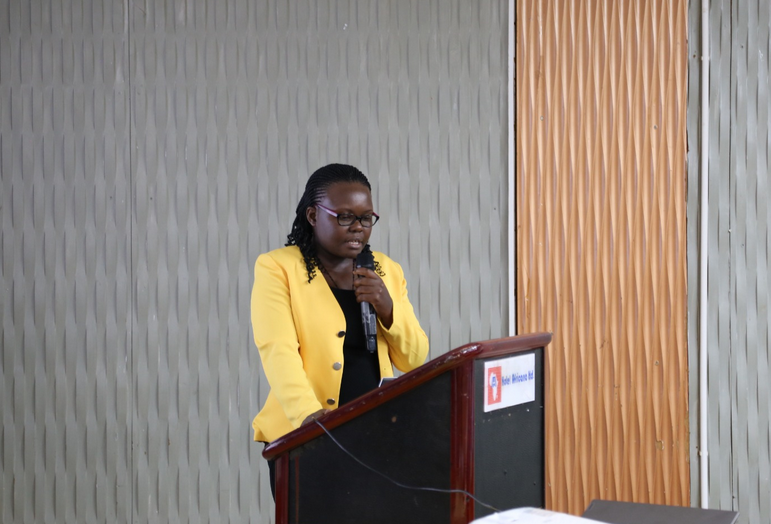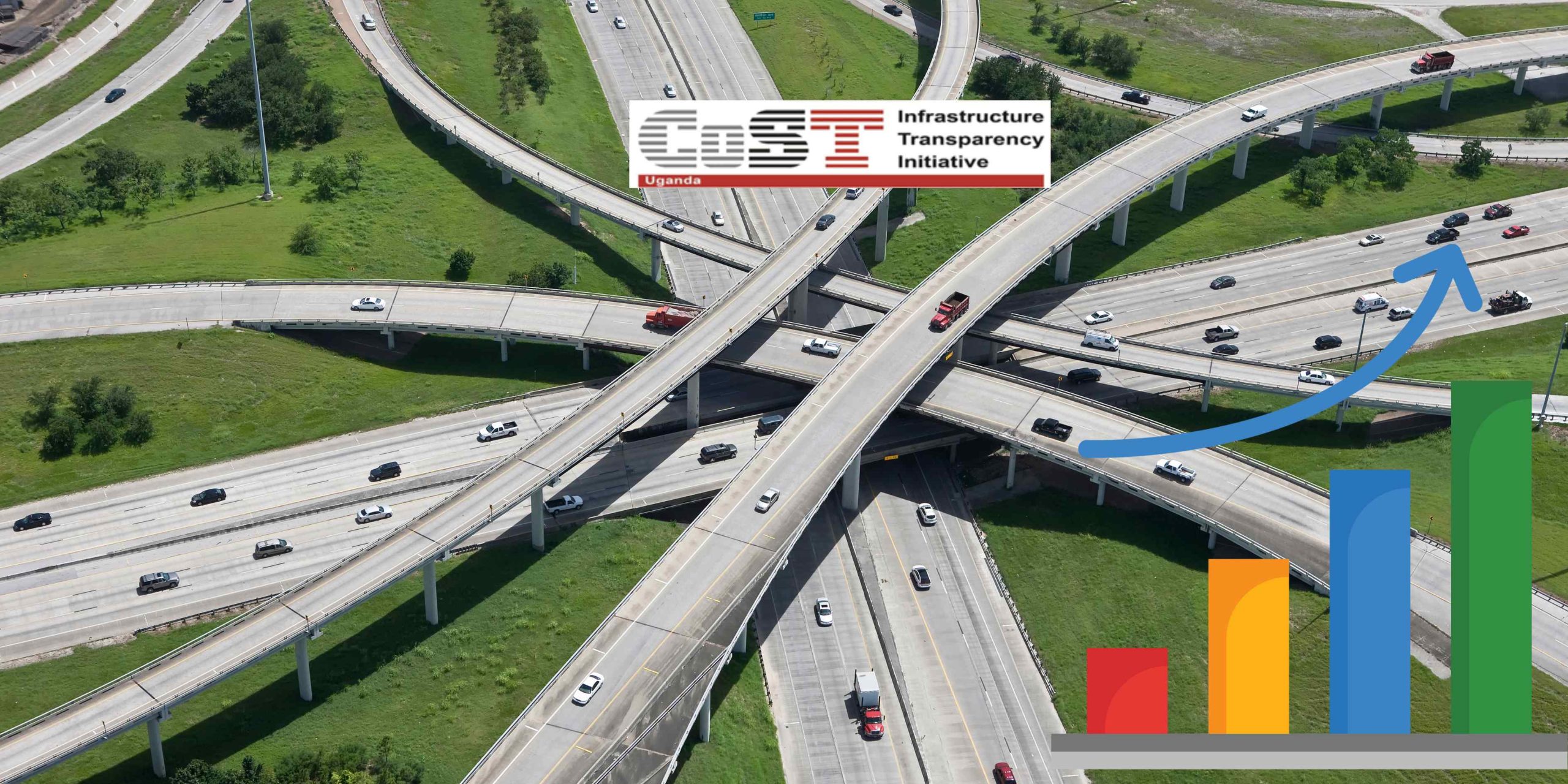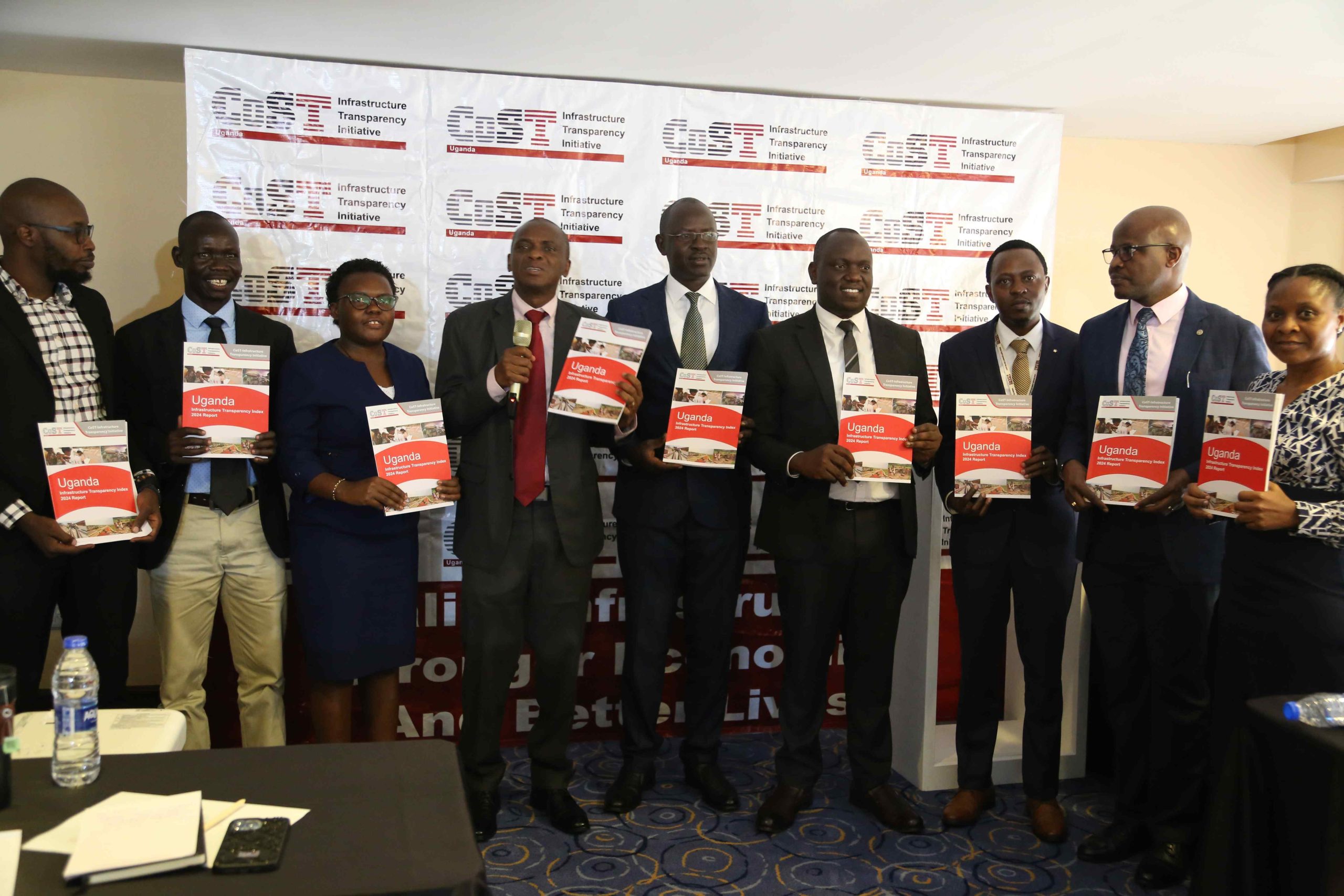
Credits to Enabel in Uganda and CoST Uganda and Private Sector Foundation Uganda (PSFU) and UNABCEC Uganda National Contractor’s Association CoST – the Infrastructure Transparency Initiative
Last week, on 11th May, our Coordinator Ms. Olive Kabatwairwe delivered a key note address at the first ever Private sector anti-corruption conference held in Kampala, Uganda, organized by Enabel Uganda under the theme “Fighting corruption is a collective Responsibility: The Role of Private Sector in eliminating the corruption vice. With concerted efforts, we hope this will be the beginning of several sector focused discussions on this agenda.
Speaking at a break away session on Corruption risks in the construction sector, she aligned her talking points to studies conducted by Enabel (social economic analysis of corruption in critical sectors ) and CoST Uganda ( factors affecting private sector participation in public infrastructure procurement, the Infrastructure Transparency Index and the Assurance processes).
These studies all indicated that, corruption is the number one hazard to infrastructure development, and it hinders the participation of the private sector. Corruption happens at all phases of project delivery, from the tendering process and Contract Management, in the Oil Infrastructure Contracts, in the participation of Chinese companies business in Uganda and in taxation and business registration among others. The Enabel study identified that, at these various stages, there are specific corruption risks, that have continued to increase the cost of winning and doing business, but also, greatly impacts the quality of infrastructure, which is delivered at the expense of local citizens who are the beneficiaries of these projects, we end up getting poorly constructed roads that have short life spans, buildings that collapse, bridges that are often times washed away.
At tender management, and specifically, during decision making on which projects to include in the procurement plans, there is a perception that some projects are initiated to create room for public officials get extra money. Most of these projects have unnecessarily large designs with many sophistication embedded in them to inflate the project associated costs to create opportunity for the officials to solicit and receive bribes. They are also known as money-making machine projects and quite a number of them have been abandoned midway with disastrous reputation damages on the implementing company.
Interestingly, as entities are developing Bills of Quantities, often times, Governments lack capacity to undertake needs assessment and develop BOQs within Government, so they hire, consultants to do such work and corruption risks appear at this stage because of lack of disclosure and public scrutiny. In that case, Government officials have registered companies that bid and win contracts in different entities dodging issues of conflict of interest. And sub contract work to other firms while retaining 10%, this explains the poor quality of works. 35% of works are abandoned in LGs because of blacklisted companies, sadly, black listed company owners, keep opening new companies that engage, and win contracts. The Enabel study identified that, there are no punitive measures taken on beneficial company owners of black listed companies. And as entities develop bid documents, they skew specifications to favour particular bidders, set unrealistic conditions such as time, personnel, size and quantity of equipment, previous experience and financial capacity to pave way to disqualify some bidders. Infact, public officials share bid documents with some companies well in advance to give them a head start in the bidding process commonly known as bid-rigging, this high level of impunity throws away most firms from the business. The lack of private sector participation was also identified in the CoST Uganda 2020 report that revealed a reduction of 182 registered providers from 553 registered providers in 2016/2017 and 371 registered providers in 2018/2019.
At contract management, her key note pointed to the risks in the bidding process which include; delays in bid processing for months as entity officials buy time to offer preferential treatment, this subjects the other bidders to the risk of accumulated bank interest on bank guarantees on bid security bonds, these interest erode the profit margins and sometimes they erode the principals. At contract award, the risk was pointed to Private companies that grease officers in the technical evaluation committee to get things done for them, bidders that look for officials to be included in the list of best evaluated bidders, and issues of conflict of interest around the accounting officers, and key public figures with influence peddling.
There was a big lion surrounding approval of materials, where officials demand for facilitation payments to certify works, businesses are often times denied certificates because they have not offered these facilitation. In Local Governments, the study identified that, public officials forcefully demand for this facilitation. Businesses complained that, in-fact, up to 10% and sometimes above of the contract sum can be lost in this type of facilitation payments. Officials, including politicians further demand for “cuts” on projects above Ugx 1B and above. Companies lose over 20% in these facilitation payments.
The key note further highlighted issues with specific companies, as a major risk to local content; noting that, the Chinese companies seem to have a special policy, different from European and local companies. There are strict codes and anti-corruption provisions on European companies however, Chinese and local companies believe that paying for government contracts is inevitable in Uganda, and they therefore, go ahead and pay the bribes to keep the business. In the study, respondents indicated that, Chinese companies have godfathers in the top echelons of the political leadership. When any local company learns that there is a Chinese company on a particular bid, they bow out, because they will never win. They keep winning because they have mastered the art of doing business, they hire and co-opt commission agents and influential government officials, respondents pointed out Isimba and Karuma dams, they always quote lowest in that it is very hard to beat their financial bid, and good enough for them, they have financial backing of their government.They have also learnt to domesticate their businesses to benefit from local content reservations.
And lastly, regarding tax compliance, businesses have learnt how to dodge tax requirements, such as income tax, VAT requirements, tax returns, they compromise regulators and URA, recruit part time staff therefore, no statutory deductions. However, there are also, the study pointed out that, there are no tax waivers for locally produced materials, there are tax waivers for imported construction materials and because of these, businesses are then induced to pay bribes to dodge taxes
Speaking to these risks, one would be right to say, corruption manifests across all ends of the triangle, induced by both public officials, politicians and the businesses themselves, and therefore, addressing these risks should be a multi-stakeholder agenda. Corruption is induced by lack of information, limited transparency, for instance, Uganda stood at 28% in the 2021, CoST Uganda Infrastructure Transparency Index. Corruption is also induced by the businesses quest to stay relevant, delays in payment, public officials expectations, conflict of interest within the civil servants, businesses have no other sources of income, government is the only main source of business, no beneficial ownership data, for instance, when a company is black listed, the owner has a right to go open a new company and bid for business again.
All is not lost, the struggle to address these risks like she mentioned earlier should be multi-stakeholder. CoST provides a strong framework to rebuild trust, and facilitate sector discussions on critical issues such as corruption. It is critical that, beneficial ownership transparency is enhanced, mandatory disclosure of infrastructure data is enhanced using the sector open data standards such as the OC4IDS, strengthening transparency, ethics and integrity, considering independent actors to undertake evaluation of tenders to address conflict of interest, leveraging on e-procurement system. Strengthening local content monitoring, evaluating and reporting, audits and timely feedback on the reservation and preference schemes, joint ventures and subcontracting.



